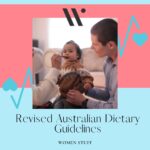
Should I buy formula if I plan to breastfeed?
For first-time moms, the dilemma of whether or not you should breastfeed is somehow bothersome. Most soon-to-be moms are educated about the benefits of breastfeeding a newborn, and how it is beneficial to the immune system of the child. Yet, everyone is uncertain whether or not they can provide an ample amount of breast milk for their baby. And the question pops up, “Should I have a backup formula just in case?”
Apart from the postpartum effects of carrying a child and giving birth, many first-time moms out there have the same question because they want the best for their babies. And instead of consulting a doctor, they’re more drawn to word of mouth and tend to believe other moms’ opinions in situations involving breastfeeding. However, just a reminder, your neighbors, sister, or mom aren’t breastfeeding professionals. Thus, it’s best to consult your doctor about the matter.
Difference of Breastmilk and Formula
Formulas are made to provide your babies with the nutritional benefits they need. In most cases, there’s also an added ingredient to make it more sustainable for newborns. Even so, formulas may have too much protein that can lead to overweight babies. On the other hand, breast milk contains nutritional and natural antibodies from moms, which can help protect babies from a varying range of illnesses and even create a special mom-child bond.
Nonetheless, if you’re only reading on the surface, you might get across that breastmilk and formulas are the same —- but they are not. For formulas, the nutritional content may always be the same. Yet, for breastmilk, it adapts to the baby’s lifespan, making it more beneficial for babies especially since their needs change as they grow every day.
When to use formulas?
Formulas are initially designed for moms to have an alternative when they cannot breastfeed. These include:
– moms who are not able to breastfeed regularly as a result of returning to work
– moms who are not able to lactate much, and thus needs additional milk
– moms who are taking specific medications that can disrupt lactation
– same-sex couples (men to men)
– foster parents, especially those that are aging
– moms that have past traumas on their breasts, making it hard for lactation or even cause uncomfortableness to moms
Hence, formulas are there to provide for the babies but still need assessment from the healthcare professionals to know the best kind of formula for the babies as they grow.
Do I need to back up?
The simple answer lies within your pediatrician. Some would recommend having formulas just in case, but most would suggest sticking to breast milk if there’s nothing wrong with lactating. However, other moms may need to stock up formulas upon the physician’s assessment. Still, it is best to seek professional medical advice to give the best formula for babies. It is to remember that formulas vary from each other, so babies can have different needs too.
When you initially plan to breastfeed, it is deemed necessary to stick with your plan. Yet, if you have justifiable concerns raised above, you need to ask your doctor about the best formula for your babies. Honestly, there’s no right or wrong with regards to breastfeeding it using formula. Because at the end of it all, we all want the best for them. So why deprive them of what they need?
Photo by Anna Shvets from Pexels





